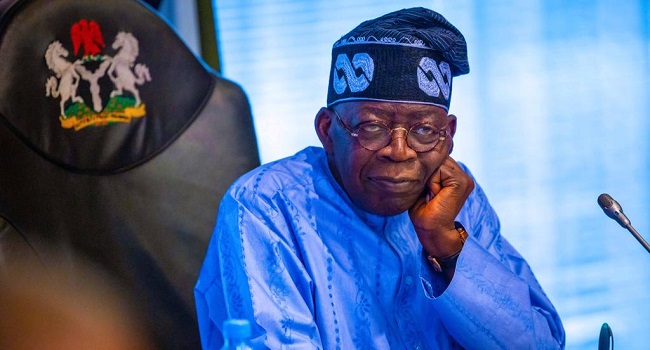President Bola Tinubu’s administration allocated more than twice as much for luxury vehicles as it did for surveillance systems, despite escalating insecurity across Nigeria, a review of government financial records has revealed.
At least N12bn was spent on luxury vehicles in 2024 and 2025 combined, compared to just N4.59bn for surveillance equipment such as drones and camera systems.
These figures are drawn from budget documents, public procurement data—including BudgIT’s accountability platform GovSpend—and payment records analyzed by Pointblank News.
While violent attacks surged and insecurity worsened across the country, Tinubu’s government approved over N5.9bn in a single day—December 29, 2023—for the purchase of luxury vehicles, including bulletproof Mercedes-Benz S-Class sedans, according to financial records reviewed by Pointblank News.
Payments were made to companies such as Laralek Ultimate Ltd (N2.4bn), Mega Ultimate Ltd (N1.7bn), and R. Cubix Ltd, which received N1.5bn for three bulletproof Mercedes-Benz S580 cars.
These expenditures coincided with President Tinubu’s proposal for an additional N5.66bn in the 2025 budget for new operational vehicles, SUV replacements, and cars for senior aides—including the Chief of Staff, Vice President, and National Security Adviser.
Meanwhile, total surveillance-related spending in 2023 and 2024—including drones, accessories, software, and training—amounted to just N4.59bn. Agencies involved include the Nigeria Security and Civil Defence Corps, Defence Space Administration, and the Office of the Surveyor General. Most drone procurements focused on training, light drones, and survey imagery—not real-time surveillance to counter active threats.
Security analysts argue that such lopsided spending priorities undermine national safety.
“What we’re witnessing is a dangerous misalignment of priorities,” said Isa Sanusi, Country Director for Amnesty International Nigeria.
“The insecurity in Nigeria is getting out of hand, and people are being killed almost every day. The government appears helpless,” he said.
According to Amnesty International and security monitoring platforms such as Zagazola and HumAngle, over 872 people were killed and more than 350 abducted across Nigeria in just 48 days between late 2024 and early 2025. Benue, Plateau, Kaduna, Zamfara, and Katsina states have all witnessed devastating attacks by armed groups and bandits.
The latest National Crime and Security Perception Survey by the NBS paints a bleak picture. Between May 2023 and April 2024, Nigerians paid N2.23tn in ransoms.
The survey recorded 51.89 million crime incidents, with rural areas experiencing more attacks than urban centres. Kidnapping was rampant, with 65 per cent of victims paying ransoms averaging N2.67m.
Trust in the police remains low. Only 36.3 per cent of robbery victims reported incidents, and just 33.1 per cent said security agencies responded to emergency calls within 30 minutes. Many communities now rely more on local vigilante groups for protection.
The federal government did approve some drone-related purchases—such as the N945m Safe School UAV project and N294m for drone airframes by the Defence Space Administration—but these efforts appear fragmented and insufficient relative to the scale of the crisis.
Some military and paramilitary officers have quietly expressed frustration. A security source Pointblank News:
“We’re facing heavily armed threats with inadequate surveillance. It’s tough to plan ambushes or responses without eyes in the sky,” the source said.
Another source familiar with internal security operations said most personnel are left stranded, not just due to a lack of surveillance systems but also because of inadequate operational vehicles, which are often reserved for senior officers.
Over the years, many Nigerian soldiers and security operatives have been killed in failed ambushes—often due to a lack of bulletproof vehicles or surveillance capabilities.
In contrast, N1.9bn was spent on vehicles for the State House alone in May 2024, with additional multi-billion-naira allocations to the Chief of Staff and National Security Adviser—ostensibly for “security vehicles.”
This spending spree comes amid severe economic distress. Inflation peaked at 34.8 per cent in December 2024, with food inflation nearing 40 per cent. Nigeria’s humanitarian crisis has escalated, with multiple stampedes at food charity events, mass displacements in the North-Central, and skyrocketing prices.
Despite these challenges, the government’s budgeting approach continues to prioritize political luxury. Civil society organizations have condemned the trend.
“The government must take steps to restore security and ease economic hardship. People deserve to live in safety and dignity,” Sanusi said.
In the 2025 budget, surveillance spending remains modest, while vehicle procurement continues at pace. For many Nigerians, the figures offer a stark reminder of where power places its priorities—even as lives remain at risk daily.



